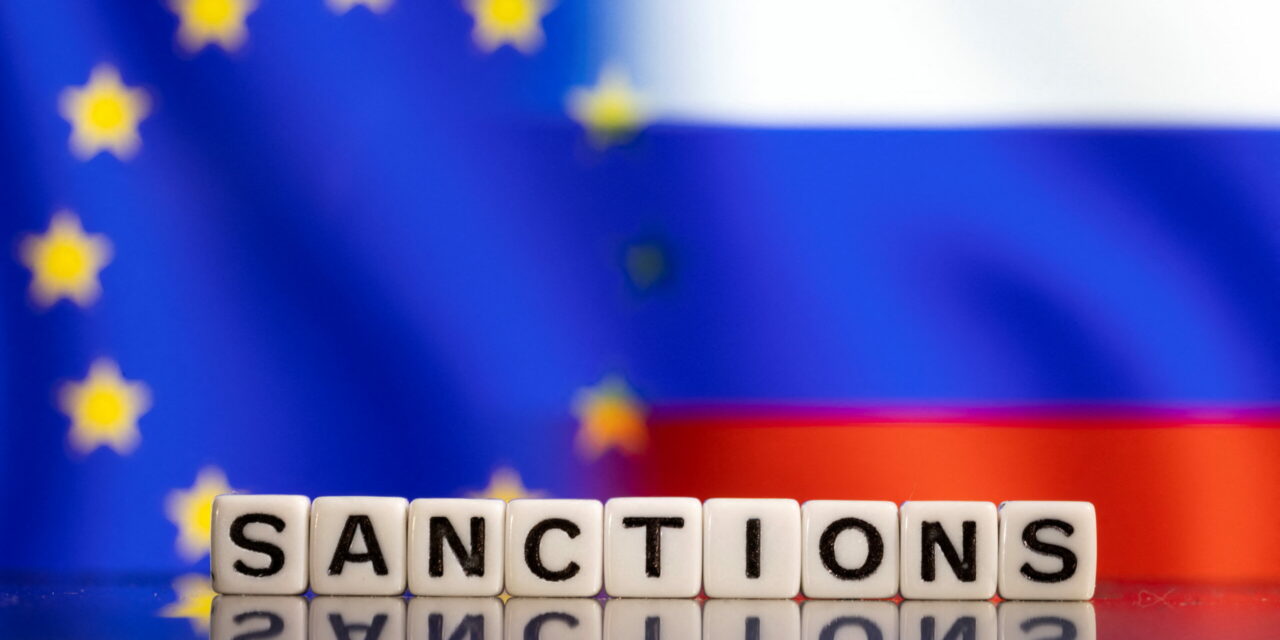That the European Union confuses its values - whatever they have become - with its interests is increasingly clear to the layman. But it's even worse that he doesn't look in the mirror, but rather shakes off reality with the same insulted, superior pride, like the aristocrats parading on board the Titanic after the encounter with the iceberg. Of course, even then, the wave grave did not reach the elite, and people quickly get over the shame.
Márton Luther published his 95 theses on October 31, 1517, which was entitled Debate on the Power of Forgiveness The Augustinian monk wanted a debate, a dialogue, since at that time the institution of the farewell was considered the most immediate privilege and source of income of the papal curia. What was that about? We come across the idea as early as the 9th century, but from the second half of the 11th century it became a practice to release church punishments (fasting, pilgrimage, excommunication) for those who participated in the Crusades. Over time, it was also announced that forgiveness also means the release of the punishments in purgatory ordered by God. Then the 13-14. In the course of the 19th century, the principle was developed that the Pope could give from this treasure of grace to all people of good will as he pleased. And the demand increased more and more, so the practice of the papal cures was changed from time to time, and the constant adaptation to the needs of the masses led to the inflation of .
From the 12th century, even those who did not take part in the Crusades could receive absolution for money, and from the 14th century, even with a simple pilgrimage to Rome, anyone who wanted could get a full absolution (complete remission of the punishment for all sins committed in earthly life). VIII. Bonifác announced the jubilee year in 1300, so anyone who visited the seven Roman pilgrim churches won a complete farewell. Then, the jubilee farewell, which was originally to be repeated every 100 years, was repeated every 50 years, then 33, and finally every 25 years, due to the great interest. Soon, even those who sent someone else on a pilgrimage in their place or paid the costs of the trip could receive a pardon, and from the 15th century, additional allowances came into effect, according to which a pardon could be obtained for amounts paid for a wide variety of purposes, such as church building, dam construction, the popes wore in Italy wars or to support wars against the Turks. Finally IV. Under Pope Sixtus, it was also possible for anyone who wanted to buy indulgences for the dead. With book printing, of course, the practice of forgiveness was also put on a new footing, the papal bulls announcing forgiveness were published in printed form, and the farewell cards certifying the forgiveness of sins that could be purchased for money by the faithful for themselves or their deceased relatives were also put on the market in printed form. And this "insurance policy" for the afterlife created a tangible, never-before-seen clarity in the practice of farewell.
This story reminded me of the performance of the European Union in recent years, from the outsourcing of security, the organization of illegal migration, and the recruitment of LGBTQ propaganda to the freeze during the epidemic, which has been permanent since 2008 (Georgia-Russia war), and consequently inflated to the point of rags in addition to sanctioning it, today - for lack of a better idea - it has reached the station of self-sanctioning.
The first victim of the economic war with Russia will be the dominance of the dollar, and it is telling that today the Wall Street Journal is writing about it, and it was also discussed at the White House's daily press conference. According to Robert C. Castel, the Saudi "yuan slap" is probably aimed at America's Iran policy, but it is also no secret that the dollar has also been pushed out of the flourishing trade between the Russians and the Chinese.
"The dominance of the US dollar is the key to the hegemony of the USA and, with it, the West. Someone should think about whether it is worth sacrificing the geostrategic dollar weapon on the altar of Russian sanctions and the Iran nuclear deal.” –
writes the Israeli security policy expert and adds:
"You can laugh. But this will soon end in tears.”
in his interview with Portfolio, which cannot be accused of being right-wing, not only talks about the futility of EU sanctions, but also outlines their short- and long-term dangers.
"The private sector is self-sanctioning: they don't want to even touch any raw materials from Russia because they don't want to be the next Marc Rich. Of course, the geopolitical impact of the war is significant, and the sanctions started very quickly, but the market is not moving due to the freezing of central bank reserves, nor the disconnection of banks from SWIFT, but due to the self-sanctioning of the Western private sector. Russian and non-Russian raw materials have separated on the market, and this is practically why there are now margin calls... And once again: this is not because the Russians turned off the tap, but because the West is sanctioning itself.
In the current situation, the only solution would be for a state actor to buy and fill the gap between the demand for Russian and non-Russian raw materials. Western central banks cannot do this because their leaders decided on the sanctions. The big market players don't even dare to touch the Russian raw material. If financial stability problems arise due to skyrocketing prices, Western central banks can correct it by printing money, but that would only be symptomatic treatment. The problem itself is that demand is separated from supply. In this case, a state actor is needed to buy up the Russian raw material that the Westerners do not want and circulate it back into the global economy, and only China can do that. Of course they will. The only question is at what price and when: when oil is at $130 or when it is at $200? When a major US bank goes under due to counterparty risk, or before? The question is whose pain threshold is where. Sanctions, for example, may be delayed until inflation becomes a political problem at home. I don't think this has been properly thought through in the West.
There were reasons why it was logical to assume that inflation would decrease, but war fundamentally changes everything. Let's look at a simple example: in order to have an egg, you need a chicken. Chickens need a constant temperature, which requires energy. The chicken also needs to eat, and for that it needs wheat from Ukraine, and the wheat needs fertilizer from Russia. If you have all these, the egg is ready. The egg then needs to be delivered, but there are no drivers and diesel prices are sky high. Of course, the core inflation indicator monitored by the central banks does not capture any of this, because it excludes energy and food prices, but the problem today is not caused by the rise in core inflation - the situation will also affect that, but today's question is much simpler than that:
are you cold at home and can you eat or not?
This is a thousand times worse, and the central bank cannot really give an answer to this. It is not right for someone to raise interest rates in this situation to curb inflation, since, for example, the Fed also aims to achieve full employment. It is better to have half a loaf of bread on the table than no bread at all.
The Russians and the Chinese have their own SWIFT systems that can be linked together. Financial cooperation already exists. There is 150 billion dollars in gold in the basement of the Russian central bank, which can ultimately be exchanged for dollars. As long as they get the money for the gas, they can safely pour it into the Chinese banking system. Anyway, at the end of every war, the reigning financial system falters a little. The dominance of the pound sterling has been replaced by the dollar, and now the dominance of the eurodollar will be shaken, and the yuan will receive a new boost. And the sphere of interest of the Belt and Road is huge. Let's not forget: it takes moments like this for a currency to become dominant. Saudi Arabia already said last week, for example, that they have too many dollars and need to diversify a bit. Of course, many people think that the Chinese currency can never be dominant because the Chinese leadership is not reliable enough.
But the lesson two weeks ago was that the dollar is not that reliable either: it turned out that they simply close the door on you if you want to leave.
It is a perfectly viable alternative that the Chinese are now building a new financial system.
And what about the European and American sanctions?
They are completely counterproductive. You can use the extraordinary privileges given by the dollar as a weapon, but only once! Not again. You can play with Afghanistan, Iran and similar small economies, but confiscating half a trillion euro-dollars is a completely different level. Everyone learned their lesson from this. I'm already waiting for the next auction of 10-20-30-year bonds, which I think will be very weak, because the central banks will not come. Let's imagine ourselves in the shoes of the Chinese: if we have geopolitical ambitions involving Taiwan in the next 5-10 years, why should I buy assets that will bind me for 10-20-30 years, and if I intend to take action, they will freeze them?
The current sanctions have unforeseeable consequences, and I still do not understand how this was not foreseen in the West.
Despite the war and tensions, the Russians have not done anything to harm business relations, and I believe they will not do so. All of the current market disruptions are due to Western sanctions and backlash. The Russians will probably stick to the purpose and reason of the invasion of Ukraine, and the economic relations will change, but the raw material will flow from the Russian side. If the West needs it, it needs it, if it doesn't need it, it doesn't need it, everyone has their own problems. However, it is important to say that there is a difference between luxury and necessity:
it will certainly bother the Russians if they can only buy Russian hamburgers instead of American ones, Chinese phones instead of Western ones, but not as much as the Europeans, who will freeze at home without Russian gas."
Featured image: Shutterstock
Source:
Lilla Krász: Controversies surrounding the farewell. In: The history of the early modern period (Edited by: János Poór)












